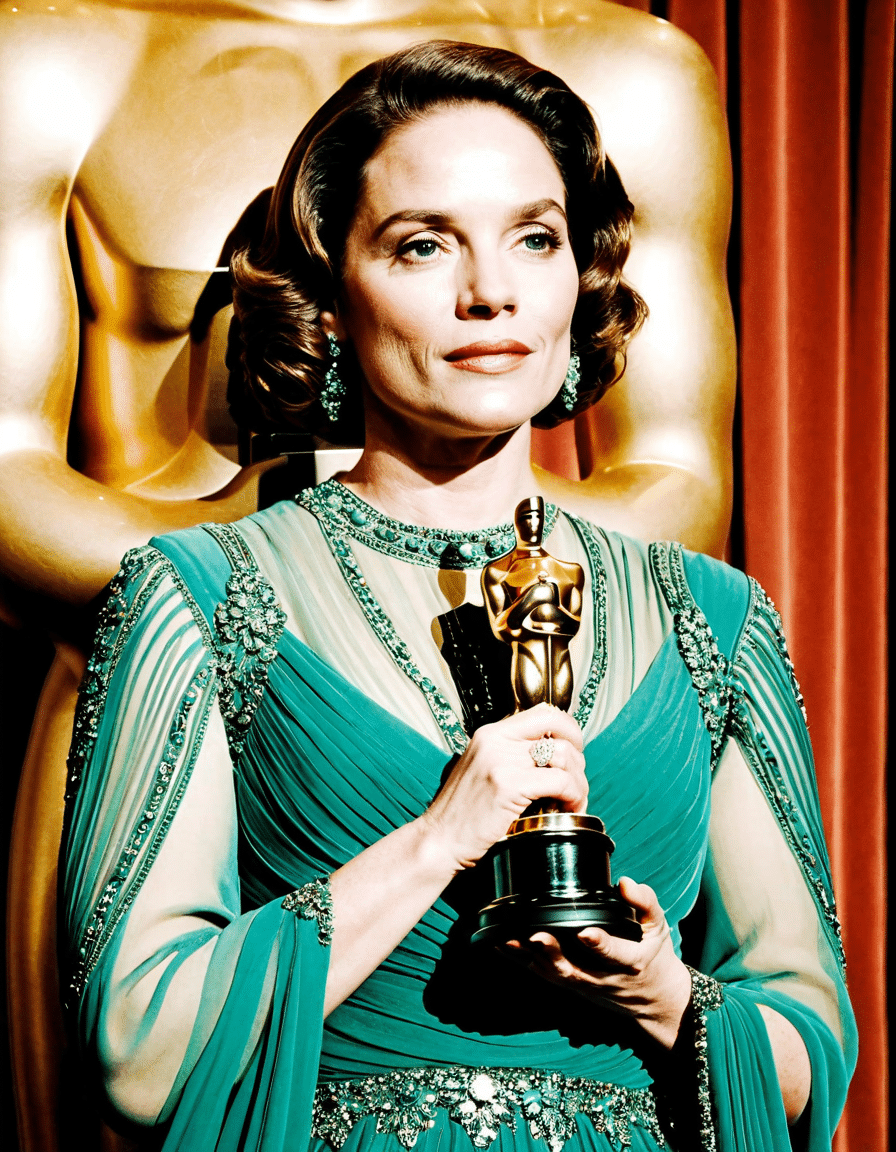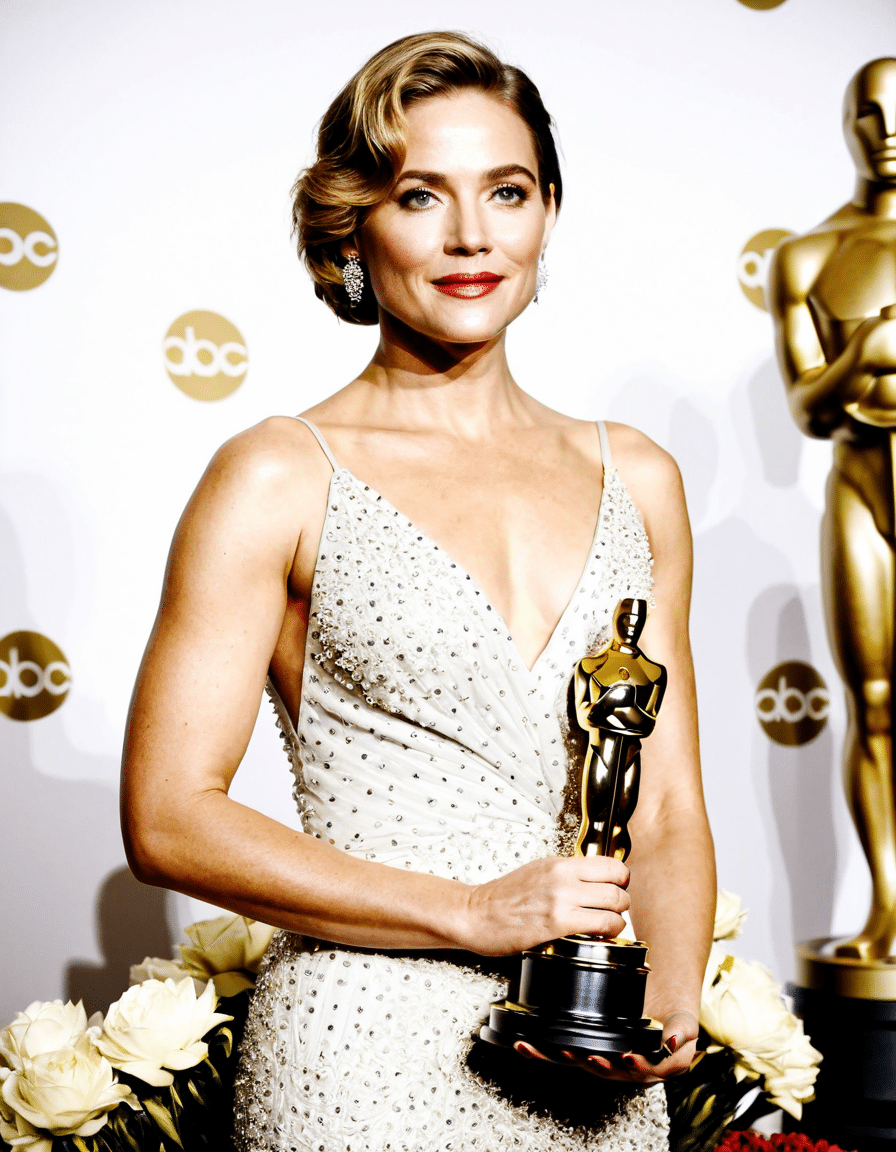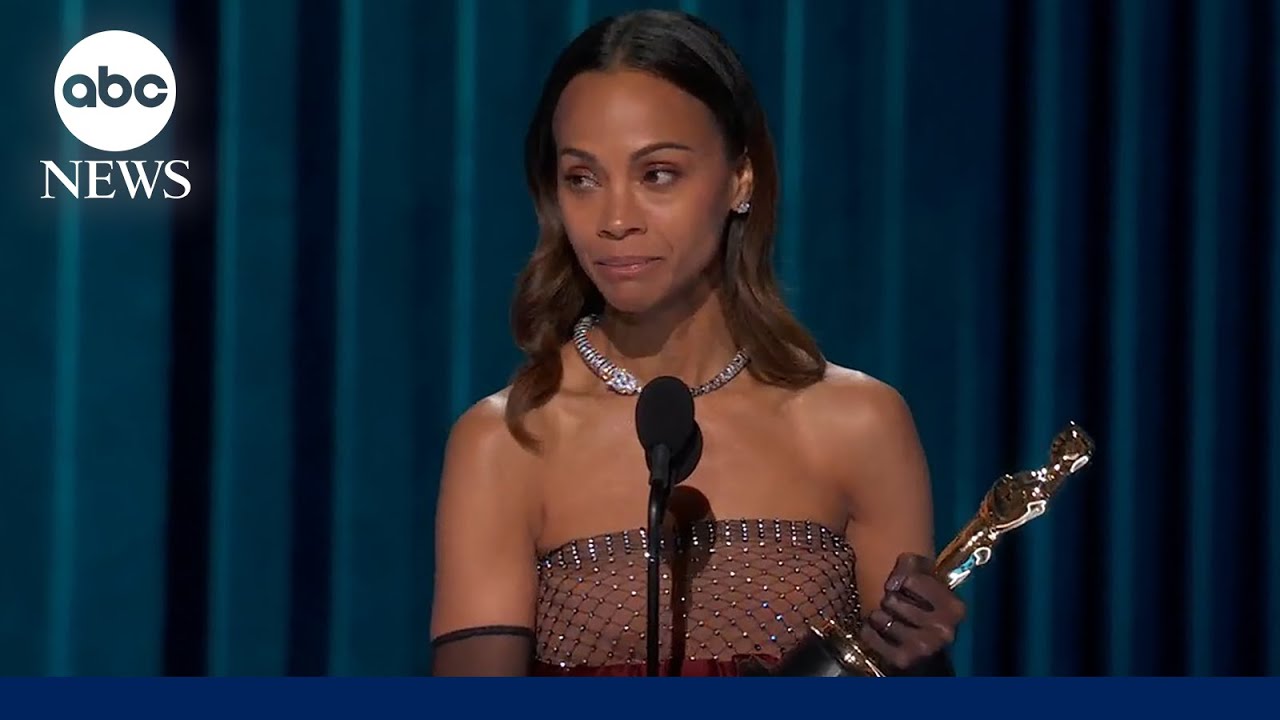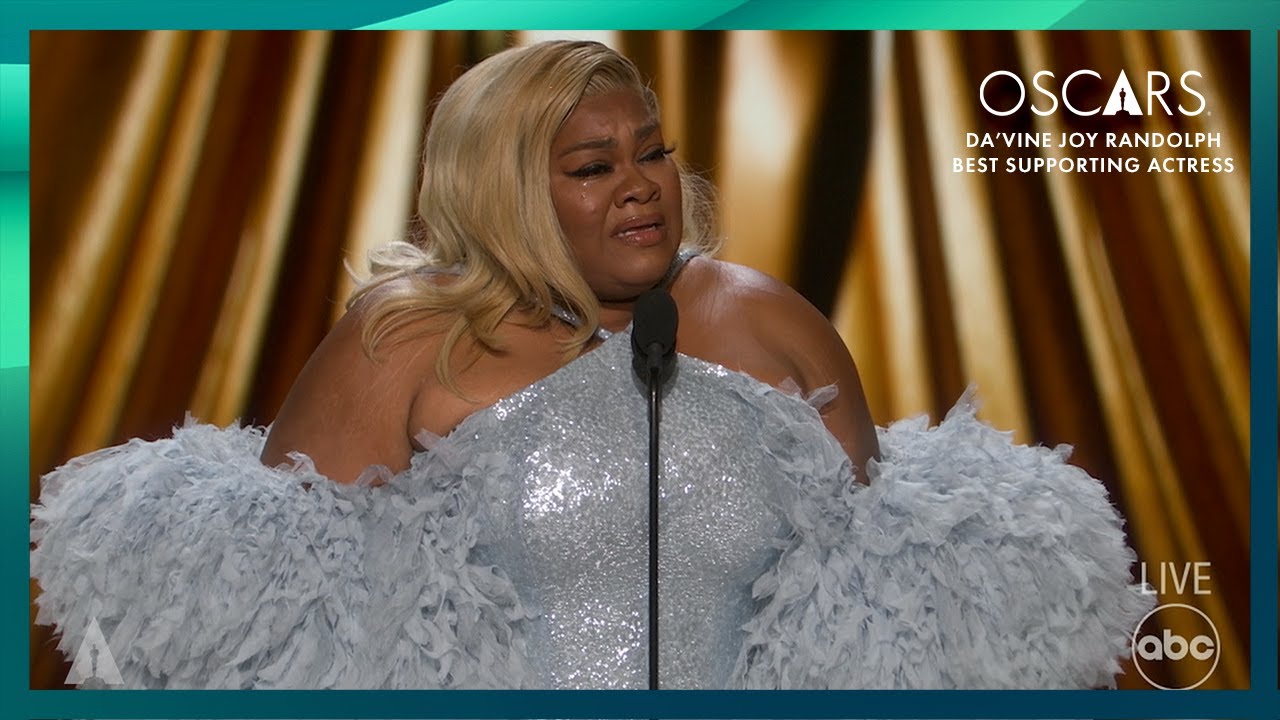The Academy Awards have always been the gold standard for recognizing talent in cinema. Among their many categories, the Academy Award for Best Supporting Actress often shines a light on performances that elevate films to new heights. These actresses not only enhance the story but sometimes steal the show, leaving audiences buzzing long after the credits roll. So, let’s take a deep dive into some of the most unforgettable performances in this category, celebrating the artistry and impact of these talented women.
Top 7 Iconic Academy Award for Best Supporting Actress Performances

1. Viola Davis in Fences (2016)
Viola Davis seized the Academy Award for Best Supporting Actress for Her heart-wrenching role as Rose Maxson in August Wilson’s powerful adaptation of Fences. Her performance strikes a delicate balance between vulnerability and strength, perfectly capturing the essence of a woman grappling with love and sacrifice amid family turmoil. Davis’s ability to convey aching emotion makes her role a stunning showcase of the human experience. It’s no wonder her monologues echo in viewers’ minds, leaving us questioning our own familial relationships.
2. Anne Hathaway in Les Misérables (2013)
Anne Hathaway’s haunting performance as Fantine in Les Misérables earned her the coveted Oscar in 2013. That iconic rendition of “I Dreamed a Dream” isn’t just a song; it serves as a visceral journey through despair and maternal love. Hathaway’s commitment is astounding; her drastic weight loss and emotional vulnerability turned her character into a heartbreaking focal point of the film. Watching her unravel on-screen feels like getting punched right in the feels, reminding us how far a mother’s love can go, no matter the cost.
3. Lupita Nyong’o in 12 Years a Slave (2014)
When Lupita Nyong’o took home the Academy Award for Best Supporting Actress for her gut-wrenching portrayal of Patsey in 12 Years a Slave, she didn’t just showcase talent; she crafted an important narrative about the horrors of slavery. Nyong’o’s ability to convey both resilience and suffering is as stark as the history it reflects. Every scene featuring her evokes sympathy and anger, sparking critical conversations about race and endurance in America. Her victory at the Oscars was much more than an award; it marked a vital moment in Hollywood history.
4. Judi Dench in Shakespeare in Love (1999)
Judi Dench’s portrayal of Queen Elizabeth I in Shakespeare in Love is a masterclass in brevity. Though she appeared on-screen for a mere eight minutes, her delivery earned her the Academy Award for Best Supporting Actress and left a lasting impact. Dench encapsulates the essence of power, vulnerability, and the complexities of leadership in her limited screen time. This performance serves as a reminder that in storytelling, sometimes quality trumps quantity, demonstrating how a well-executed scene can pack an emotional punch.
5. Octavia Spencer in The Help (2012)
In The Help, Octavia Spencer brilliantly brought to life the character of Minny Jackson, earning her the Academy Award for Best Supporting Actress. Her performance intertwines humor with heartbreak, exploring themes of race and friendship in the segregated South of the 1960s. Spencer seamlessly blends comedic timing with dramatic depth, making Minny not only relatable but unforgettable. By opening up conversations about race relations, Spencer’s role resonates far beyond the screen, reminding us of the importance of empathy and social justice.
6. Tilda Swinton in Michael Clayton (2008)
Tilda Swinton’s portrayal of Karen Crowder in Michael Clayton showcases her exceptional ability to embody complex characters. Winning the Academy Award for Best Supporting Actress, Swinton delivers a performance laden with moral ambiguity as a corporate attorney wrestling with the chaos of her choices. Her nuanced performance reveals the internal conflicts that arise in high-stakes situations. Swinton proves that supporting roles can carry significant emotional weight, making her an unforgettable part of this gripping tale.
7. Michelle Williams in Brokeback Mountain (2006)
Michelle Williams’ role as Alma in Brokeback Mountain is pivotal to the film’s emotional core. Nominated for the Academy Award for Best Supporting Actress, she captures the essence of love, betrayal, and longing with remarkable grace. Williams effectively illustrates the quiet desperation of a woman left in the shadow of her husband’s inner turmoil. Alma’s nuanced struggles make her an emotional anchor in a story about love that dares not speak its name. Williams’ performance doesn’t just enchant; it stays with you, inviting reflection long after the film ends.
The Interconnection of Supporting and Leading Roles in Film
In the intricate tapestry of cinema, supporting performances often steal the spotlight while remaining pivotal to storytelling. The Academy Award for Best Supporting Actress recognizes how these crucial roles provide depth and context to their leading counterparts. For example, the emotional intensity of Hathaway in Les Misérables doesn’t just enhance her character; it lifts Jackman’s portrayal of Jean Valjean, creating a harmonious balance that elevates the film.
Moreover, the interplay between leading and supporting roles demonstrates how actors build off each other’s performances. Consider Viola Davis and Denzel Washington in Fences; their dynamic exemplifies how complementary portrayals can define a narrative, weaving together a richer cinematic experience. These actresses prove time and again that supporting roles can rival leading performances, echoing throughout the industry and inspiring future talent.

Reflecting on the Evolution of the Academy Award for Best Supporting Actress
The Academy Award for Best Supporting Actress has transformed significantly over the decades, reflecting broader shifts in societal attitudes and women’s roles in cinema. Today’s winners often tackle pressing social issues, bringing stories to life that resonate with contemporary audiences. Films like 12 Years a Slave and The Help address race and gender, showcasing the power of storytelling and the importance of representation in Hollywood.
Recognizing these performances is more than a celebration of talent; it serves as a crucial reminder of the narratives that shape our understanding of the world. By pushing the boundaries of traditional roles, these actresses inspire generations to embrace authenticity in their craft. As the Academy Award for Best Supporting Actress continues to spotlight exceptional performances, it ensures that every character—big or small—can profoundly impact viewers’ hearts and minds.
With each new award season, we look forward to the fresh, vibrant stories that await, reminding us that the cinematic landscape is ever-influenced by the art and dedication of supporting actresses. From touching performances that resonate emotionally to groundbreaking narratives redefining the cinematic experience, the future of film is undoubtedly bright.
So there you have it! The incredible journey of the Academy Award for Best Supporting Actress is a tale of emotion, artistic expression, and cultural significance. Let’s keep the discussions alive and appreciate the phenomenal talent that continues to shape the film industry today. Don’t forget to delve into fun stuff like calming pet essentials at good Treats For Puppies or the fascinating world of Jujutsu Kaisen anime!
Academy Award for Best Supporting Actress: The Best Performances Ever
The Trailblazers of Supporting Roles
The Academy Award for Best Supporting Actress has celebrated an array of unforgettable performances throughout its history, showcasing talent that often steals the spotlight from the lead. Take for instance Hattie McDaniel, the first African American actor to win an Oscar in 1940 for Her role in Gone with the Wind. Her victory represented a pivotal moment in Hollywood, breaking barriers in an industry that was often restrictive. Interestingly, when you’re diving into amazing performances, you might stumble upon stunning insights from pages like Dhar Mann Videos. These snippets of inspiration remind us that every role—big or small—can carry significant weight.
Moreover, the journey of an actress in a supporting role can be just as dynamic as that of the leading actor. For example, actresses like Jennifer Hudson and Lupita Nyong’o have both used their Academy Award-winning moments to shine brightly in their careers. Hudson, winning for Dreamgirls, not only highlighted her singing prowess but set the stage for her to take on diverse roles afterward. It’s similar to how the Power Book 2 Episodes blend drama and character development, making even the secondary cast memorable.
The Surprising Stats
Get this: nearly half of all Academy Award for Best Supporting Actress winners eventually head back to the Oscars, snagging nominations for lead roles. It’s a wild pattern that reveals the industry’s tendency to recognize talent across different spectrums. If you look at the success stories of various actresses, you might consider how iconic film fusions like X-Men or The Lost city present supporting characters who add depth to the narrative. These performances are crucial and often lead to further acclaim, creating a fascinating cycle of recognition.
Speaking of recognitions, another fun nugget lies in the fact that many winners have been part of incredible franchises, drawing viewers in from multiple angles. The varying layers of their characters contribute to richer stories. For instance, women who’ve taken part in films like The Lost City bring a sense of adventure while showcasing their ranges. Just think of how captivating it is to see a performer transform over the years—a bit like Varg Vikernes, who consistently surprised audiences with his shifts in style and substance.
And let’s not forget the cultural impact of this award! Winning the Academy Award for Best Supporting Actress can serve as a launchpad, opening doors to not just romance or drama, but even adventure and action-packed roles we might dream of. This back-and-forth with standout performances and rich storylines ensures a legacy that influences future talent, making this award a cornerstone of cinematic achievement.








